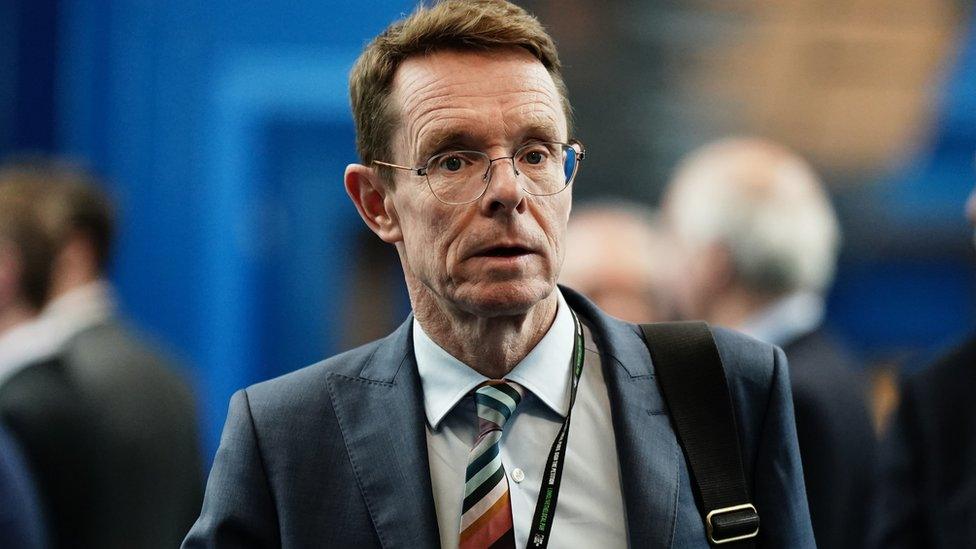Mayor-PCC merger legal bid: How did we get here?

West Midlands Police and Crime Commissioner (PCC) Simon Foster is opposed to plans to merge the roles of his office with the mayor's
- Published
An application for a legal review into a plan to merge the roles of West Midlands mayor and police and crime commissioner (PCC) is due to be heard in court.
The region’s Labour PCC Simon Foster applied for a judicial review in the High Court to challenge Home Secretary James Cleverly’s backing of a transfer of powers to the mayor’s office.
West Midlands’ Conservative mayor Andy Street previously wrote to Mr Cleverly proposing the merger, which was signed off by MPs on 26 February, external.
Mr Foster’s application is scheduled to go before a judge at the Royal Courts of Justice in London on Tuesday. But how did it get to this point?
When was the plan announced and what does it mean?
Mr Street confirmed in November that he had written to the home secretary proposing that the powers of the region's PCC be transferred to the mayor.
This would see the role of PCC scrapped in the West Midlands, with the mayor overseeing West Midlands Police and having the power to set the force’s budget, appoint chief constables and issue a policing plan.
In his letter to the home secretary, Mr Street said the new powers the government held under the Levelling Up and Regeneration Act meant it could transfer powers from PCCs to elected mayors.
The merger would not happen until after the winner of the West Midlands mayoral election in May was confirmed, Mr Street said.
Why did the mayor propose the merger?

West Midlands mayor Andy Street said other elected mayors have responsibility for policing
Mr Street claimed in his letter to the home secretary that the police were not being properly held to account.
The mayor said he had acted because “crime in this region has more than doubled” and that he “could not allow it to go on any longer”.
When quizzed further on the proposal, he pointed to places like London and Greater Manchester where elected mayors are responsible for the police in their respective areas.
He described that model as an effective way of leading in big city regions.
What was the PCC’s response to the plans?
Mr Foster said he “deeply” disagreed with the proposal and described it as a “hostile takeover”.
In a statement issued shortly after the announcement, he accused the mayor of abolishing people’s right to vote.
“There is no local democratic support for this cynical and divisive power grab,” he added.
A Home Office-approved consultation into the proposals showed 50% of responses to a survey of about 7,000 people disagreed with the merger while 46% agreed, although the outcome was called into question.
When he announced the application for a judicial review, Mr Foster said he was committed to comply with his electoral pledge.
A spokesperson for the Home Office said: "The government's plan to level up the country includes the ambition for more mayors to be accountable for policing and crime locally, as is already the case in London, Greater Manchester and West Yorkshire.
"Following public consultation the Home Secretary has made the decision to transfer the Police and Crime Commissioner functions to the Mayor of the West Midlands. This will come into effect in May following the mayoral elections."
Follow BBC West Midlands on Facebook, external, X, external and Instagram, external. Send your story ideas to: newsonline.westmidlands@bbc.co.uk, external
- Published15 February 2024

- Published8 February 2024

- Published7 February 2024

- Published20 December 2023

- Published2 November 2023
